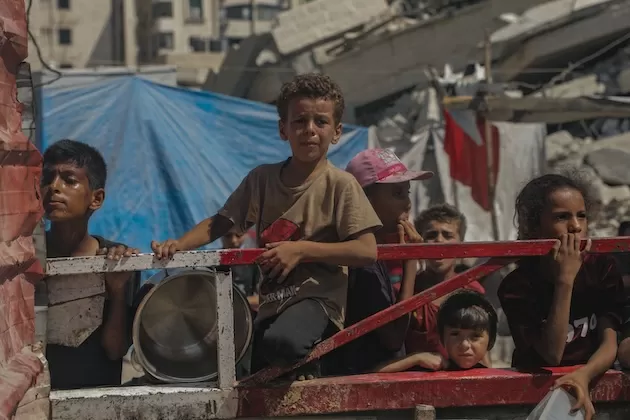The Integrated Food Security Phase Classification (IPC) has officially declared a state of famine in Gaza. This announcement, made on August 15th, marks the highest level of food insecurity on the IPC scale, with Phase 5 indicating extreme food shortages and widespread starvation. This is the sixth IPC analysis on the crisis in Gaza, and the results are alarming.
The IPC is the world’s biggest food monitoring system, used to assess food insecurity in different regions and provide early warning signs for potential famine. It is a collaboration between governments, NGOs, and the United Nations, and its findings are widely recognized and respected. The fact that the IPC has raised its classification to Phase 5 in Gaza is a clear indication of the severity of the situation.
According to the latest IPC analysis, as of mid-August, famine is a reality for the people of Gaza. This means that there is a severe lack of food and other basic necessities, leading to malnutrition and starvation. The ongoing conflict and blockade in Gaza have severely impacted the region’s ability to produce and import food, leaving its inhabitants vulnerable and in desperate need of assistance.
The IPC report highlights the dire situation in Gaza, with over 2 million people facing severe food insecurity. This number includes 1.4 million people who are classified as being in an emergency situation, meaning they are one step away from famine. The report also states that the situation is expected to worsen in the coming months, with an estimated 1.6 million people at risk of famine by the end of the year.
The IPC’s declaration of famine in Gaza is a wake-up call for the international community. It is a call to action to provide immediate and sustained assistance to the people of Gaza. The report emphasizes that urgent and coordinated efforts are needed to prevent further deterioration of the situation.
The IPC has also highlighted the need for a comprehensive and long-term solution to the crisis in Gaza. This includes addressing the root causes of the conflict and finding sustainable ways to ensure food security for the people of Gaza. It is not enough to provide short-term aid; a lasting solution is needed to break the cycle of food insecurity and famine in the region.
The international community must come together to provide the necessary support to the people of Gaza. This includes financial aid, as well as lifting the blockade and allowing for the free flow of goods and services into the region. It is also crucial to ensure the safety and security of humanitarian workers, who are on the frontlines providing essential aid to those in need.
The declaration of famine in Gaza is a call to action, but it is also a reminder of our collective responsibility to ensure food security for all. The people of Gaza are not alone in this crisis, and it is our duty to stand in solidarity with them and provide the necessary support. We cannot turn a blind eye to the suffering of our fellow human beings, and it is time for decisive action to end the famine in Gaza.
In conclusion, the Integrated Food Security Phase Classification’s declaration of famine in Gaza is a stark reminder of the urgent need to address the crisis in the region. It is a call to action for the international community to come together and provide immediate and sustained assistance to the people of Gaza. Let us not forget our responsibility to ensure food security for all and work towards a lasting solution to end the famine in Gaza.



